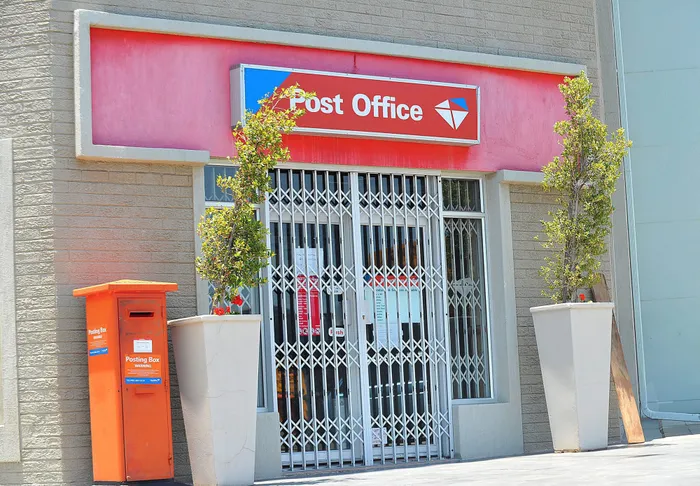Parliament rejects South African Post Office's request for classified information update
PARLIAMENT

The committee, chaired by Sonja Boshoff, on Wednesday cited the significant public interest in Sapo's ongoing struggles and the use of public funds in the rescue process as the rationale for their decision.
Image: Supplied
Parliament's Select Committee on Economic Development and Trade has rejected an attempt by the South African Post Office's (Sapo) Business Rescue Practitioners (BRPs), Anoosh Rooplal and Juanito Damons, to provide a partial update containing classified information deemed commercially sensitive.
The committee, chaired by Sonja Boshoff, on Wednesday cited the significant public interest in Sapo's ongoing struggles and the use of public funds in the rescue process as the rationale for their decision.
During a virtual session marred by increasing discontent, the committee expressed strong objections to the classification of information by the BRPs, arguing that their role in managing a public entity should not shield them from stringent accountability expectations.
Boshoff resolved to postpone the virtual session to a night in-person session next Wednesday where all stakeholders, including the Deputy Minister of Communications and Digital Technologies Mondli Gundubele, would be present.
The Select Committee was unswayed by that the BRPs who had the support of Gungubele for the classification of information and had presented under similar conditions to the Sapo creditors, the department and Parliament's Portfolio Committee on Communications and Digital Technologies.
"The Business Rescue Practitioners must not have an over inflated opinion of themselves. Sapo has been on the backfoot for over 20 years. There is a reason these are public meetings, they are using public funds for the rescue," said DA MP Nicolaas Hendrik Pienaar.
"If the intelectual property they are claiming needs to be protected is really groundbreaking, I'm sure they applied for patents and can defend in court. If there's an effect on the market or stocks that might be influenced or if there is a third party involved in trading that is a different matter, but the BRPs must not have an over inflated opinion of themselves."
The motion to postpone the update to the committee was supported by the majority of committee members, who called for stronger accountability from the BRPs. They pointed to previous incidents found to be of contempt towards the committee, including sending junior representatives and postponing appearances unduly.
The case for contempt was spurred further by a revelation that the letter and information in preparation for the Select Committee appearance had been dated early June but was confirmed to have reached the Parliament's Secretariat a day prior to the sitting of the committee.
Gungubele had lent support to the committee hearing the partial presentation and being kept in the dark on what the BRPs had determined to be confidential, urging the committee to err on the side of caution and not allow commercially sensitive information to impede the success of the Post Office as it was public funds that were being utilised.
"I also take note that you said you don't have this information. You have been asked to treat it as confidential. It's our own judgement on which that is based. Commercial sensitivity remains applicable whether it's public or private," Gungubele said.
"If the commercial sensitivity is about the success of the Post Office and the money to guarantee the success comes from public funds, then I would advise we err on the side of caution."
Meanwhile, the National Council of Provinces (NCOP) Procedural Officer, Advocate Shamara Ally, asked for comment on the legality of the postponement and said the MPs faced a dilemma in which they would be asked to keep public information confidential against the freedom of expression statutes and their obligation to their voter constituencies.
Rooplal and Damons, in separate attempts, argued for the independence of their position and that the information to be presented from the business rescue process was different from the turnaround strategy, which required confidentiality because of market sensitive information.
"We are aware of our obligations in handling an entity of this size as Sapo and the public interest. We have made many representations and updates to shareholder, National Treasury, and other committees," Rooplal said.
"Any inference we are hiding our obligations, we deny it and take exception to that."
BUSINESS REPORT